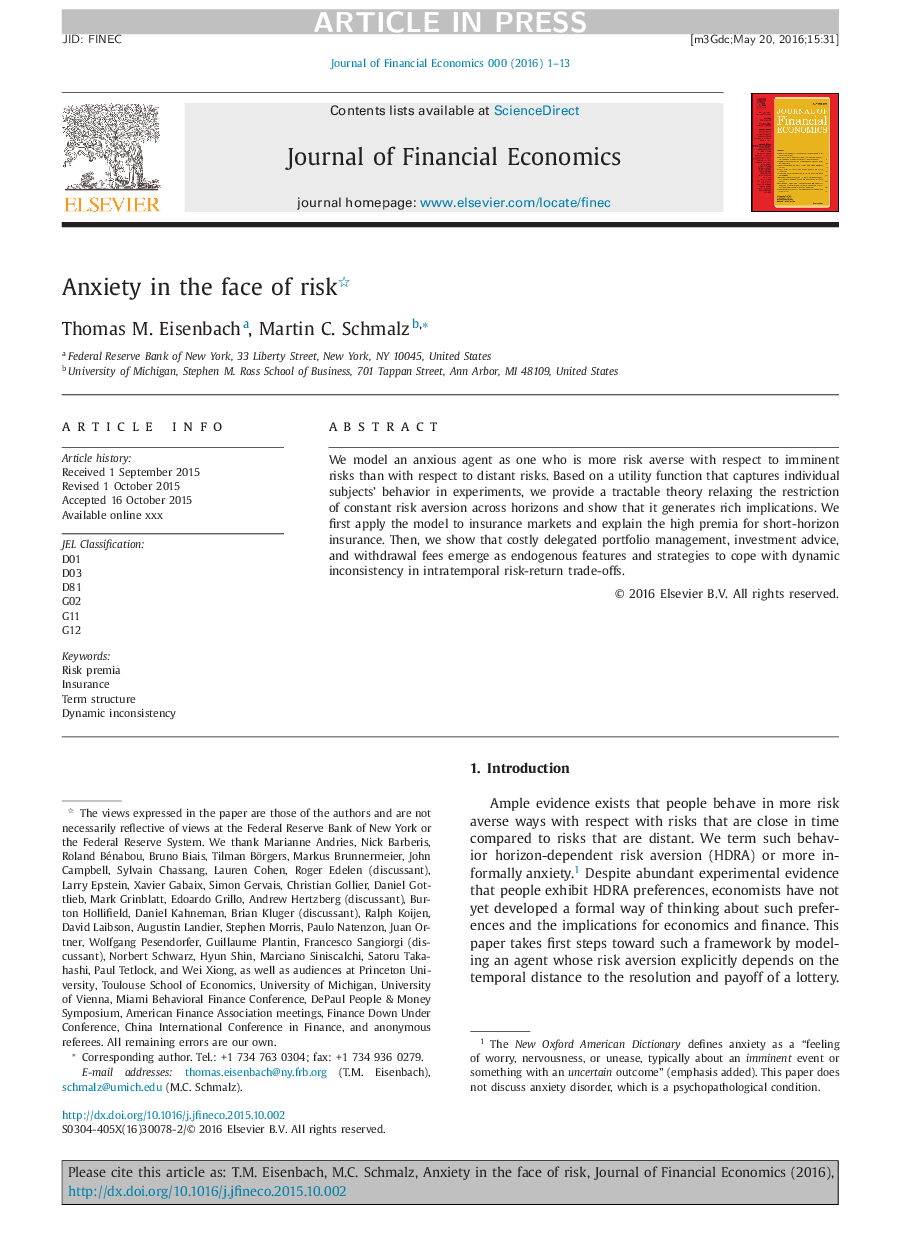| Article ID | Journal | Published Year | Pages | File Type |
|---|---|---|---|---|
| 10475712 | Journal of Financial Economics | 2016 | 13 Pages |
Abstract
We model an anxious agent as one who is more risk averse with respect to imminent risks than with respect to distant risks. Based on a utility function that captures individual subjects' behavior in experiments, we provide a tractable theory relaxing the restriction of constant risk aversion across horizons and show that it generates rich implications. We first apply the model to insurance markets and explain the high premia for short-horizon insurance. Then, we show that costly delegated portfolio management, investment advice, and withdrawal fees emerge as endogenous features and strategies to cope with dynamic inconsistency in intratemporal risk-return trade-offs.
Related Topics
Social Sciences and Humanities
Business, Management and Accounting
Accounting
Authors
Thomas M. Eisenbach, Martin C. Schmalz,
